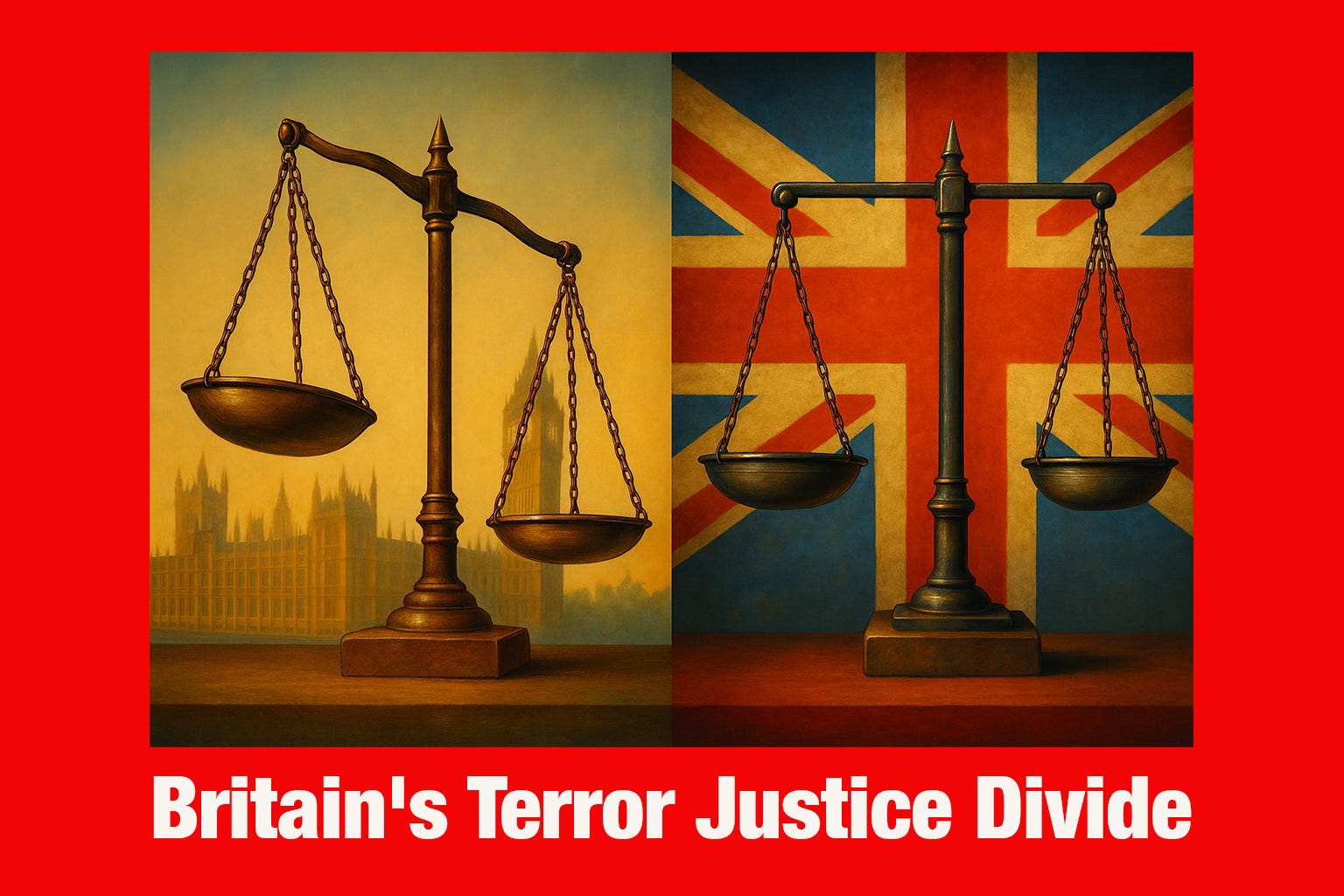Two-Tier Terror Justice Exposed in UK
Hundreds of ISIL Fighters Walk Free While British Troops Face Persecution
A new report from the British Parliament's Joint Committee on Human Rights (JCHR) has highlighted a troubling inconsistency in how the UK prosecutes terrorism. While calling for the prosecution of returned ISIL fighters, it inadvertently exposes a two-tier system of justice in Britain's approach to terrorist offences.
Nearly half of the 850 people of national security concern who left the UK for Syria have since returned, yet none have faced justice for crimes committed there. These crimes, which the UK Government formally recognises as genocide, include the murder of 5,000 Yazidis, the displacement of 200,000 people, and the abduction of 2,700 women and children who remain missing.
Yet this renewed push for prosecution stands in marked contrast to the treatment of other terrorist organisations, particularly the Provisional IRA (PIRA). While ISIL members face potential prosecution and citizenship stripping, former PIRA members have largely avoided similar legal scrutiny despite extensive evidence of their activities.
This disparity extends beyond terrorist groups. British military personnel have faced prosecution for historical actions, creating a peculiar hierarchy where soldiers face stricter legal accountability than some terrorist organisations.
Meanwhile, media outlets devote extensive coverage to decades-old allegations against British troops, while the presence of hundreds of unprosecuted terror suspects on UK soil receives remarkably little attention — a stark example of the two-tier approach to terrorism that has emerged in British justice.
The JCHR calls for urgent reform, including better coordination between the Crown Prosecution Service and police in gathering evidence, and amendments to the International Criminal Court Act 2001 to remove restrictions that currently limit prosecution to British nationals or residents.
The committee also demands greater transparency in the Government's use of citizenship-stripping powers and immediate action to repatriate British children from Syrian camps where they face violence and poor access to basic necessities.
Lord Alton, chairman of the JCHR, emphasises that terrorist crimes cannot be ignored simply because they occurred overseas. "We know that British nationals committed the most horrendous crimes under the Daesh regime," he states. "To date, no Daesh fighters have been successfully prosecuted for international crimes in the UK and we find this unacceptable."


